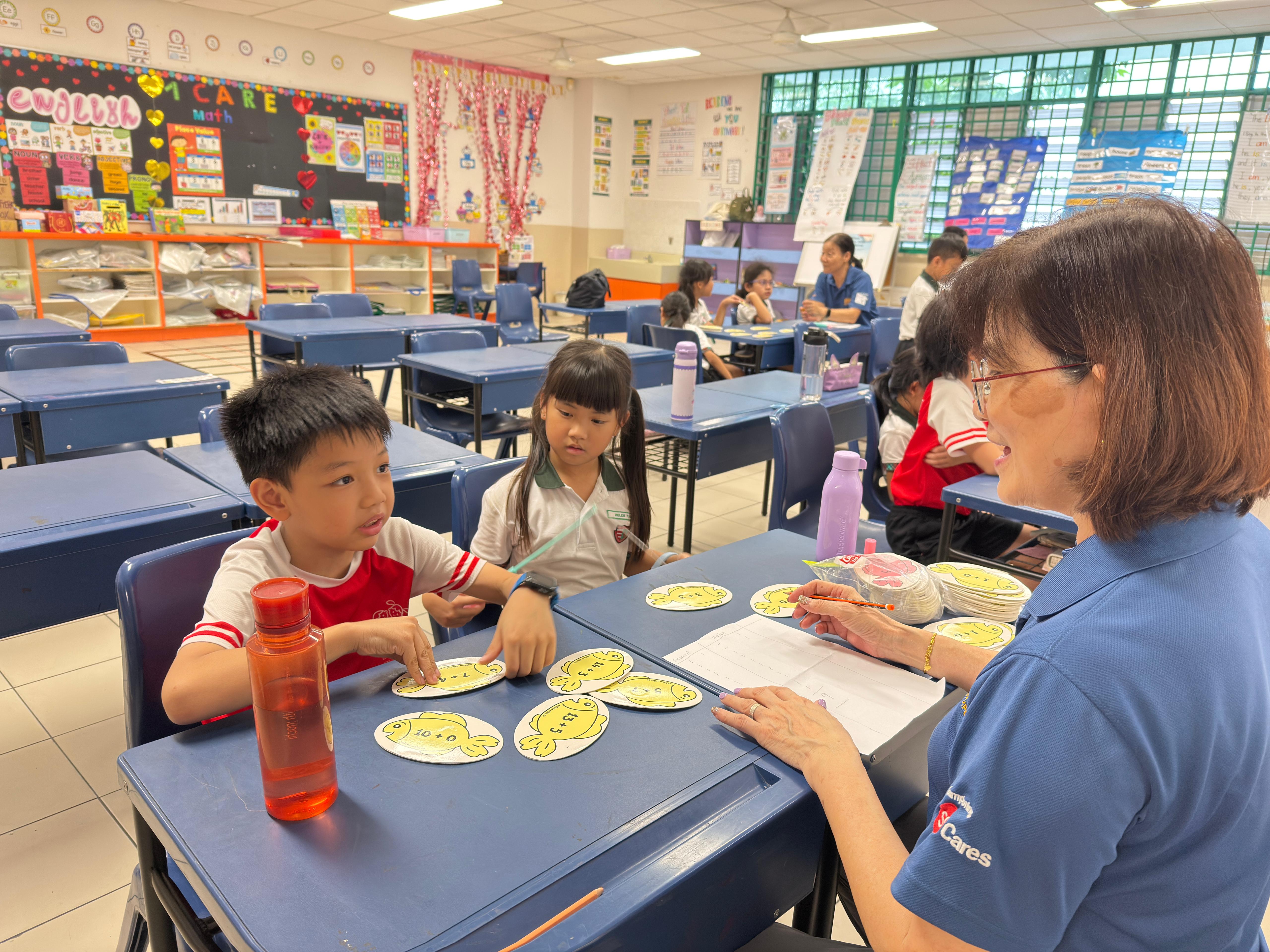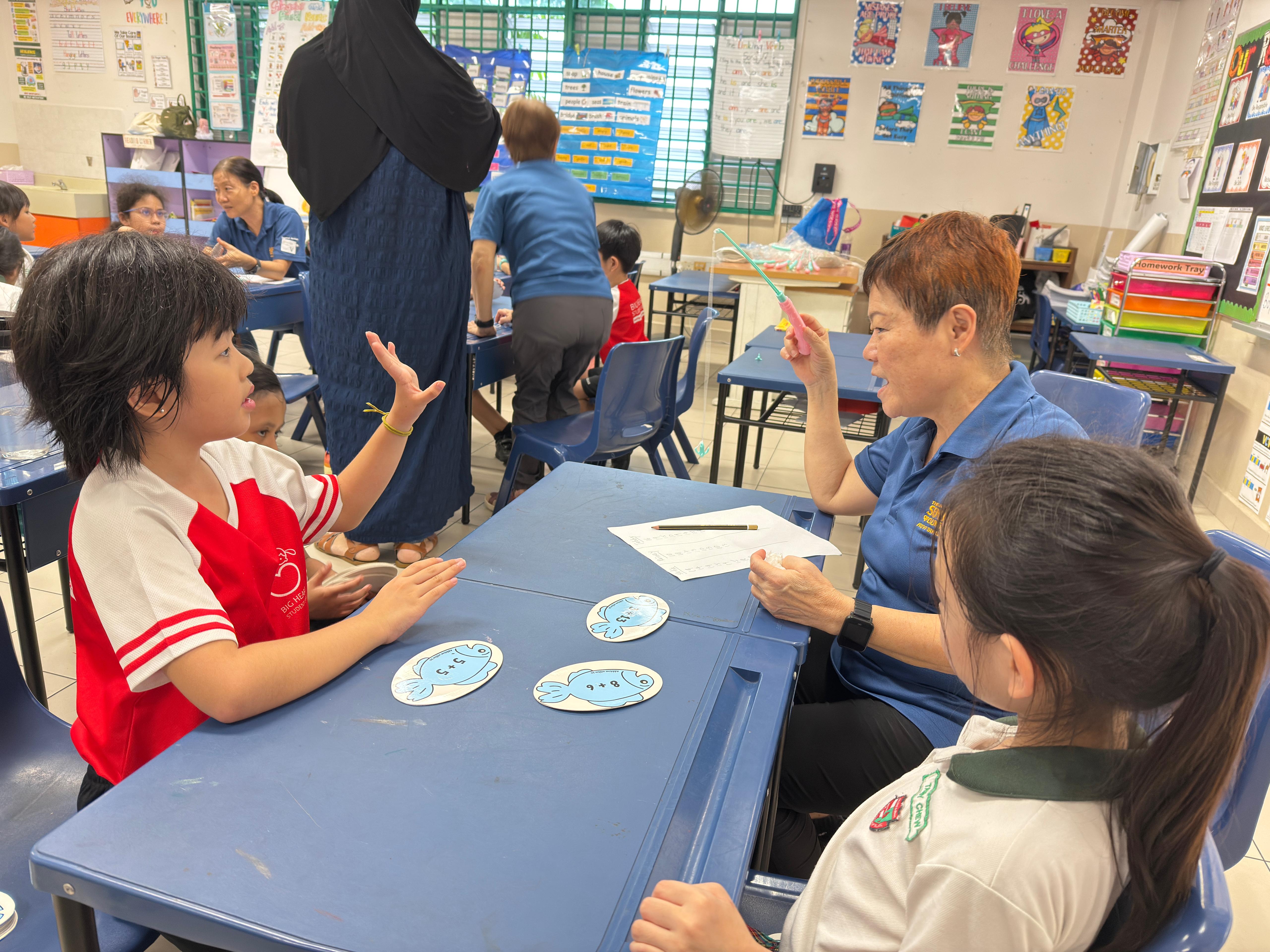Mathematics
Mathematics
Vision: Every pupil an effective and confident problem-solver
Mission: To cultivate an inquiring mind and to develop mathematical reasoning in problem solving
The Mathematics Curriculum in Xishan Primary School is centred on Problem Solving, with the five key supporting components as illustrated in the MOE Mathematics Curriculum Framework. We focus on building strong fundamentals as the foundation for cultivating an inquiring mind and developing mathematical reasoning in problem solving.
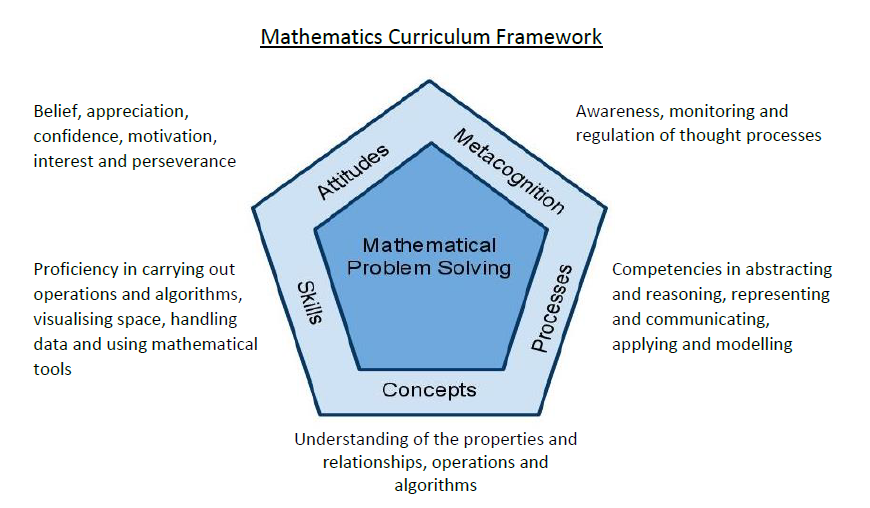
In Xishan Primary School, pupils are given opportunities to discuss, reason, and reflect, through various learning experiences and technological explorations to:
Develop a deep understanding of mathematical concepts
-
Make meaningful connections between mathematical ideas
-
Appreciate the applications and relevance of Mathematics in everyday life
Happenings@Xishan Primary School
Discover how Xishan Primary School teachers use Microsoft Excel to make mathematics graphing concepts more engaging and relevant for Primary 5 students. Students learn to create bar charts and line graphs using real data while developing their Digital Literacy and Technological Skills (DLTS). See how this innovative approach helps students connect mathematical concepts to practical applications while building both computational thinking and data interpretation abilities. Perfect for educators and anyone interested in how technology can be meaningfully integrated into mathematics lessons.
Teaching Approaches
Concrete-Pictorial-Abstract (CPA) Approach
Teachers curate meaningful learning experiences for pupils to first use concrete objects to explore and understand mathematical concepts and ideas. Pupils then progress to pictorial representations, such as diagrams and models, which help them visualize and make sense of the concepts. Finally, pupils are introduced to symbols and equations, enabling them to represent the concepts in their abstract form.

|

|
|
Pupils using multilink cubes to learn the concept of Division |
Pupils learning about the nets of solid figures.
|


|

|
|
Pupils estimating and measuring the volume in various containers. |
Pupils assemble angles in a triangle into a straight line. |
Mathematical Problem-Solving Approach
At Xishan Primary School, we use the BEST Problem-Solving Approach to help pupils develop confidence and competence in solving mathematical problems. Through this approach, teachers guide pupils to apply systematic thinking routines and a range of heuristic strategies, enabling them to analyse problems, explore possible solutions and solve mathematics problems.

|
Inquiry- Based Learning (IBL)
Through Inquiry-Based Learning (IBL), pupils are presented with problem situations and encouraged to explore ideas and patterns to find solutions. Teachers carefully sequence and facilitate class discussions, guiding pupils as they co-construct their understanding of mathematical concepts. This approach nurtures critical, adaptive, and inventive thinking, while helping pupils appreciate the relevance of Mathematics in real-life contexts.

|

|
|---|---|
|
Primary 1 pupils exploring different methods of counting numbers within 100. |
|
Outdoor and Home-based Learning Experiences
We also extend learning beyond the classroom doors for pupils to apply mathematical concepts in real world context. These meaningful activities nurture an appreciation of how Mathematics is all around us.

|

|
|
Pupils use Padlet to share with teachers and friends about Maths around them. |
Pupils learning about angles around the school. |
Technological Explorations
Teachers design Student Learning Space (SLS) lessons and integrate interactive digital manipulatives to help pupils visualise abstract mathematical concepts and receive instant feedback on their learning. Technology also allows pupils to collaborate seamlessly and learn at their own pace, deepening their understanding and making Mathematics lessons more engaging and meaningful.

|

|
|
P6 SLS lessons on circumference of circle. |
Pupils checking their understanding of Time using online platforms. |
Our Programmes
P1 to P3 Koobits Rewards Programme
The Koobits Rewards Programme encourages our pupils to become self-directed learners by recognising consistent effort and achievement in Koobits. Each term, the top-performing pupils are awarded tokens as a form of encouragement and motivation. This programme fosters a sense of responsibility, perseverance, and a love for learning, while making the learning of Mathematics fun and rewarding.

Excellence 2000 (E2K) Mathematics Programme
For pupils who demonstrate strong aptitude and passion in Mathematics, the P4 and P5 E2K Mathematics Programme extend their learning beyond the standard curriculum through an inquiry approach. Pupils collaborate with their peers to develop reasoning skills and deepen their conceptual understanding through puzzles, games and mathematics explorations.
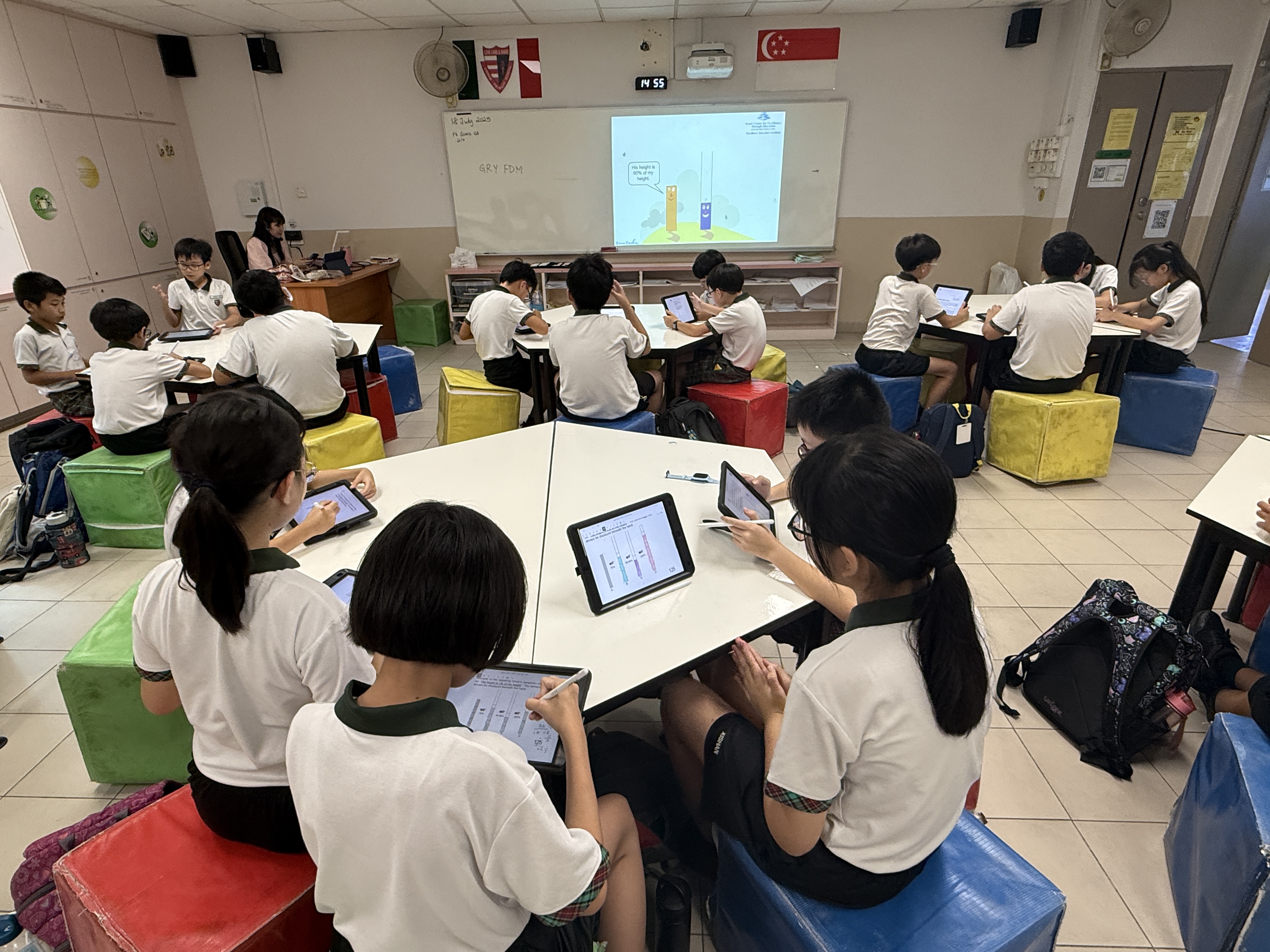
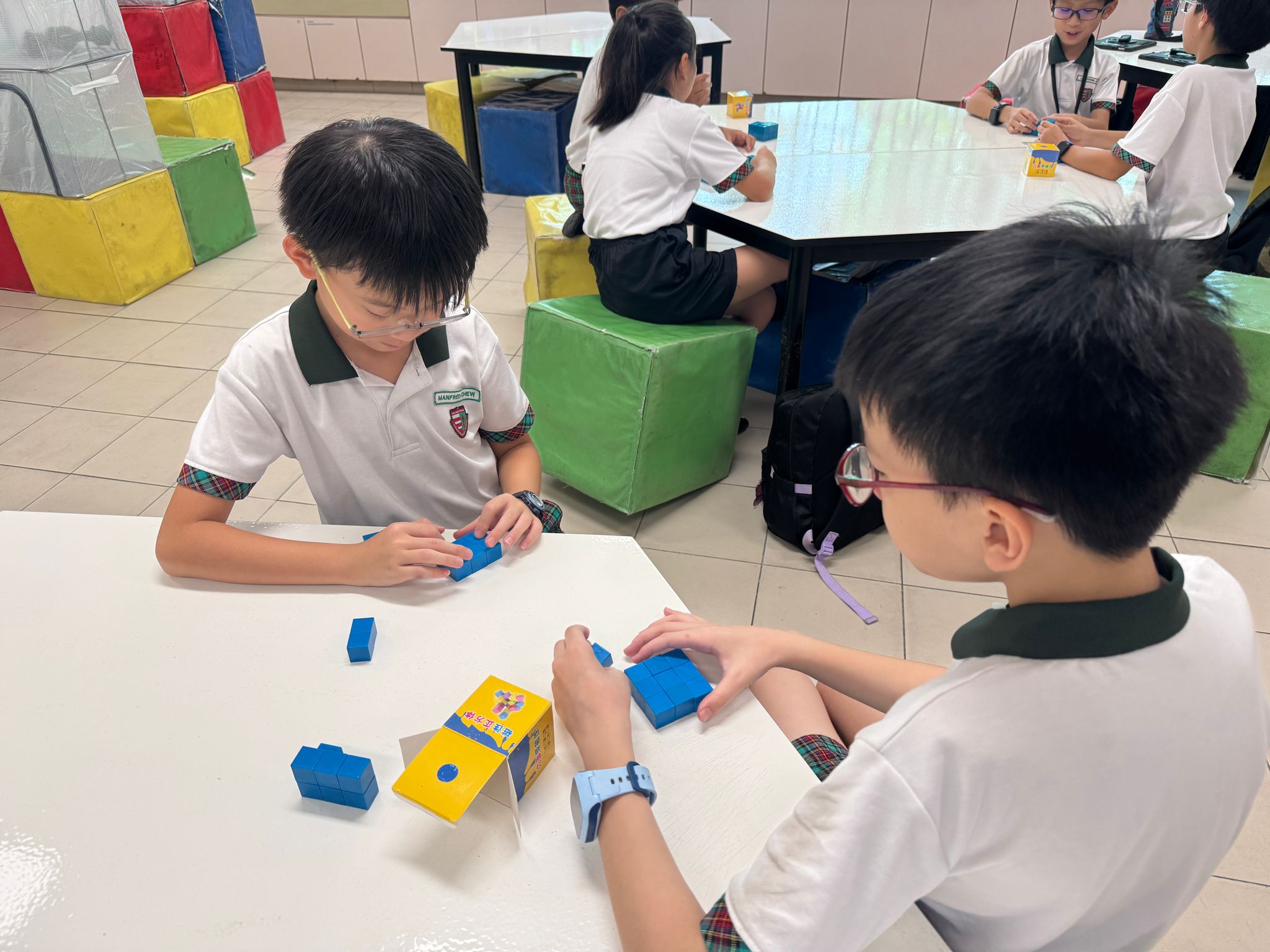
Enrichment and Olympiad Competition
We offer SASMO (Singapore and Asian Schools Math Olympiad) enrichment programmes and competitions to challenge pupils who demonstrate strong aptitude in Mathematics. Under the guidance of a certified coach, pupils explore advanced concepts and develop higher-order thinking skills to tackle non-routine problems.
P1 to P4 Learning Support Mathematics (LSM)
The LSM programme at Xishan Primary School provides additional support for Primary 1 to 4 pupils who need help in acquiring basic numeracy skills. The programme focuses on building strong mathematical understanding through varied activities such as the use of manipulatives, learning experiences and Mathematics games. It also builds students’ confidence and positive beliefs about their ability to do Math. LSM classes are conducted in smaller groups during mathematics periods by specially trained teachers.
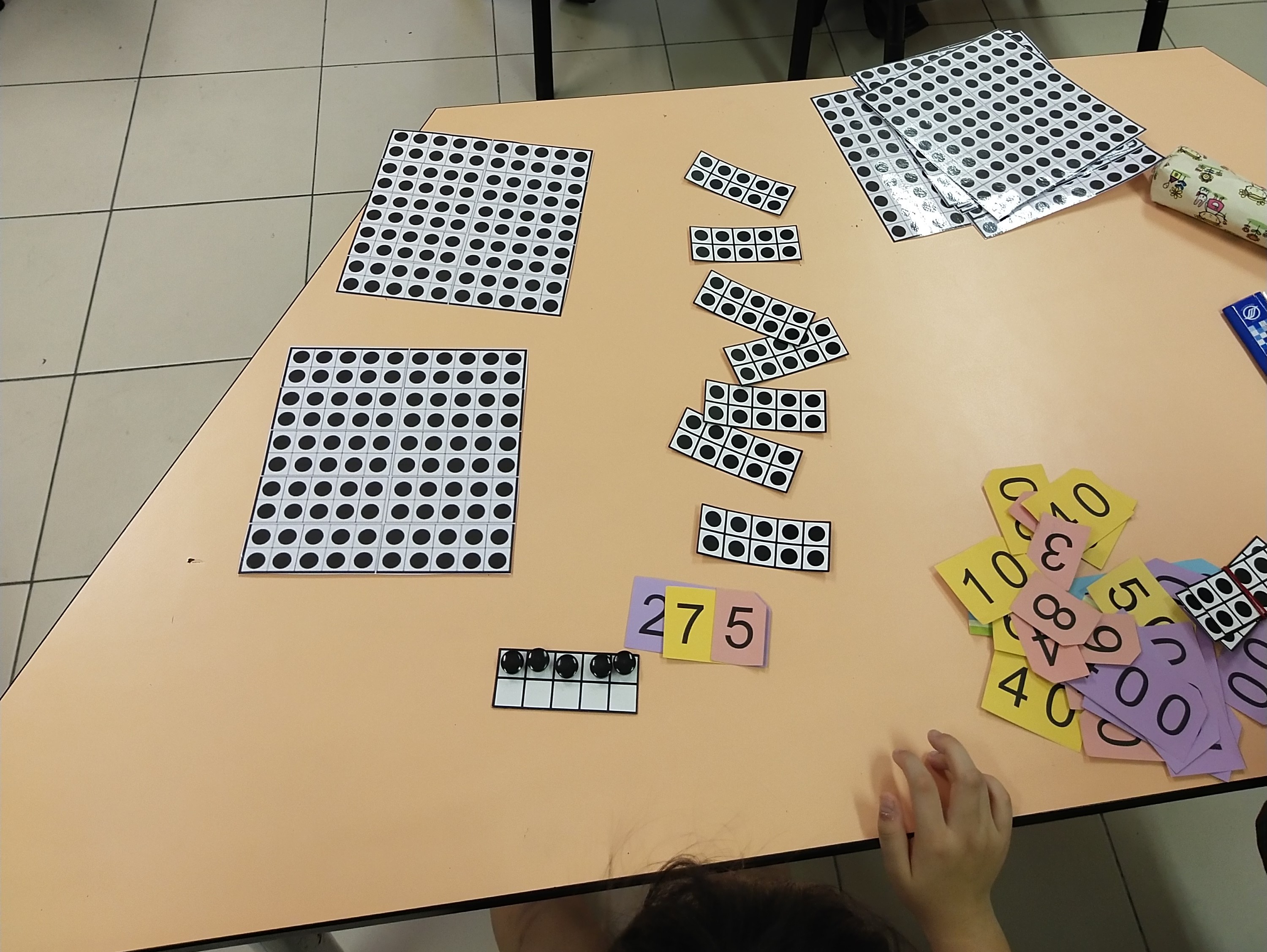
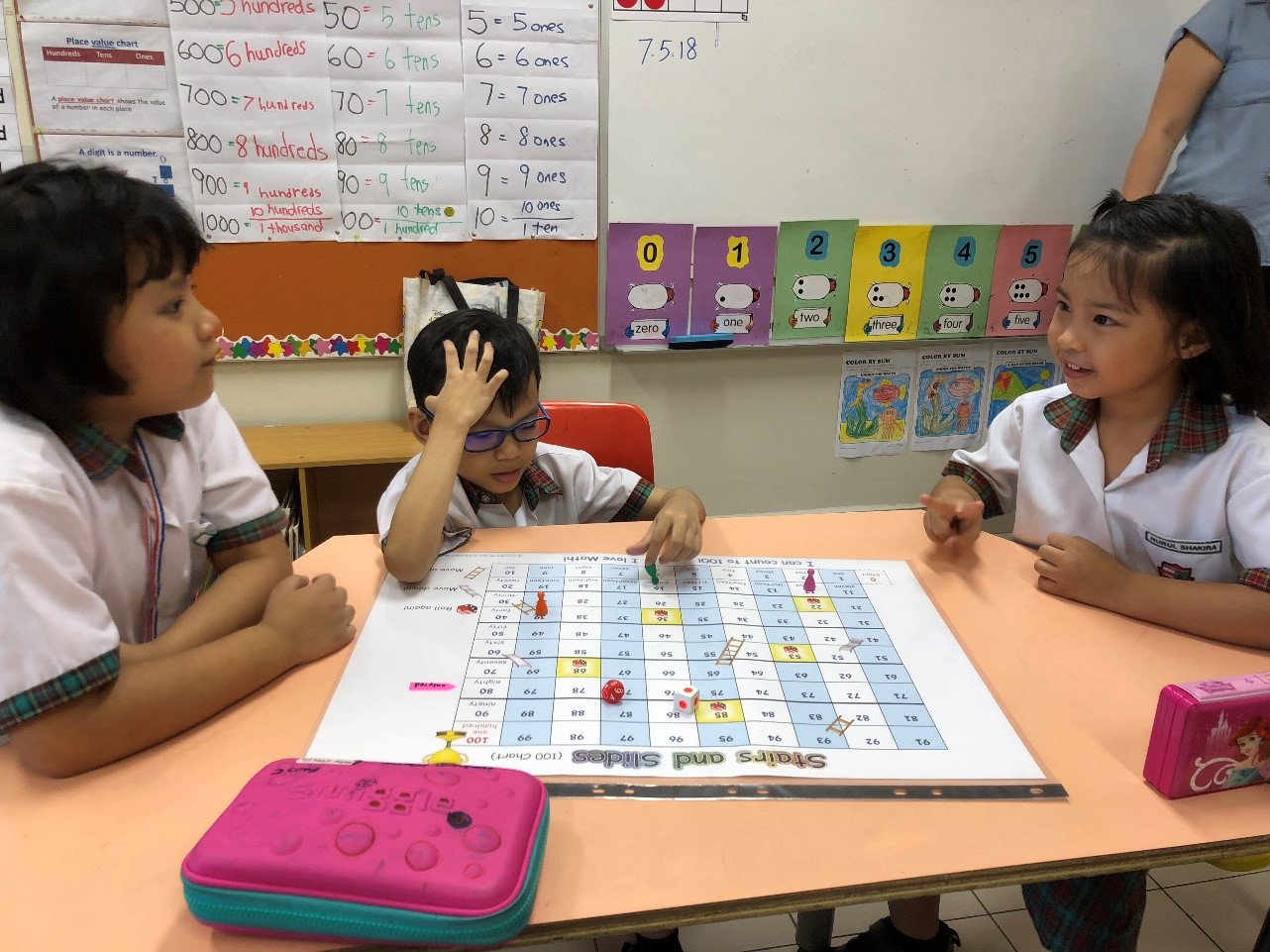
P1 and P2 Numeracy Programme
The P1 and P2 Numeracy Programme is an after-school enrichment held at the Xishan Student Care Centre. Led by trained volunteers, the programme engages weaker learners in a variety of mathematics activities and games designed to strengthen motivation and build confidence. Using game-based resources curated by MOE, pupils revisit and reinforce fundamental numeracy concepts in a fun and supportive environment, helping them develop a stronger foundation in Mathematics.
